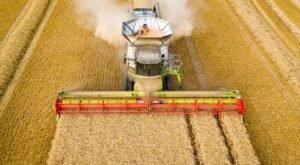In the farming community, there’s a saying that goes, “You reap what you sow.” While this holds true for crops, it’s also relevant when it comes to securing your family’s future. Life insurance is often overlooked by those in the agricultural sector, yet it plays a pivotal role in safeguarding your livelihood and ensuring peace of mind for your loved ones. In this blog post, we will explore the essential aspects of life insurance tailored specifically for farmers, highlighting its importance, the types available, and how to choose the right policy for your unique needs.
Understanding Farmers’ Unique Insurance Needs
Farmers face a multitude of risks daily, from unpredictable weather patterns to fluctuating market prices. These risks extend beyond the fields, affecting their families and financial stability. Unlike typical professions, farming is a lifestyle deeply intertwined with one’s financial health. This uniqueness necessitates a tailored approach to life insurance.
In the agricultural world, a poor harvest or sudden illness can have devastating impacts. Life insurance serves as a safety net, offering financial support in times of crisis. For instance, should a farmer pass away unexpectedly, the insurance payout can cover debts and provide ongoing income to support the family.
Furthermore, the generational nature of farming means that life insurance can help ensure the continuity of family farms. By providing funds to settle estate taxes, it prevents the forced sale of land or equipment, allowing the legacy and livelihood to continue for future generations.
Types of Life Insurance for Farmers
Term Life Insurance
Term life insurance provides coverage for a specific period, typically 10, 20, or 30 years. It is the most straightforward and affordable option, making it ideal for young farmers or those looking to cover short-term financial obligations like mortgages or equipment loans.
Whole Life Insurance
Whole life insurance offers lifelong coverage and includes an investment component known as cash value. While more expensive than term life, it provides the benefit of growing cash value over time, which can be borrowed against or withdrawn.
Universal Life Insurance
Universal life insurance combines the benefits of term and whole life policies. It offers flexible premiums and adjustable death benefits. This type is suitable for farmers who may experience variable income but still want permanent life insurance coverage.
Specialized Insurance Options
There are also specialized insurance products designed specifically for farmers, such as policies that include coverage for farm operations and assets. These can offer additional peace of mind by addressing risks unique to the agricultural sector.
Pros and Cons in a Farmer’s Lifestyle
Each type of insurance comes with its pros and cons. Term life is affordable but temporary, making it less suitable for long-term planning. Whole life provides a cash value but at a higher cost. Universal life offers flexibility but requires careful management to maintain coverage.
Case Studies and Real-life Examples
The Johnston Family
The Johnston family has been farming for generations. When Mr. Johnston unexpectedly passed away, his term life insurance policy provided enough funds to repay their farm equipment loans. This financial relief allowed Mrs. Johnston to continue running the farm without the added burden of debt.
The Martinez Farm
The Martinez family opted for a whole life insurance policy. Over time, the cash value grew significantly, providing a financial cushion. When a severe drought hit, they were able to borrow against the policy’s cash value to sustain their farm operations until conditions improved.
The Nguyen Family
The Nguyen family chose universal life insurance due to its flexibility. This decision proved wise as their income varied from season to season. They adjusted the premiums accordingly, ensuring continuous coverage without straining their finances.
How to Choose the Right Insurance Policy
Selecting the right life insurance policy involves several considerations. Start by assessing your financial needs, including debts, living expenses, and future financial goals. Determine the appropriate coverage amount to ensure your family is well-supported.
Next, consider the policy duration. For instance, if you have young children, you may want coverage until they are financially independent. Evaluate premium costs and choose a policy that fits your budget without compromising essential coverage.
It’s also important to research different insurance providers and compare their offerings. Look for companies with experience in serving the agricultural community, as they are more likely to understand your unique needs and provide tailored solutions.
The Application Process for Farmers
Applying for life insurance involves several steps. Begin by gathering necessary documentation, such as proof of income, medical records, and details of your farm operations. Some insurers may require a medical exam to assess your health.
Once you’ve selected a policy, complete the application and submit the required documents. Be prepared to answer questions about your lifestyle, health, and farming activities. The insurer will review your application and determine your eligibility and premium rates.
It’s crucial to understand common exclusions that may apply to your policy. For example, certain high-risk activities associated with farming might not be covered. Clarify these details with your insurer to avoid surprises later.
Importance of Regular Policy Review
Life insurance needs can change over time, especially in the dynamic world of farming. Regularly reviewing your policy ensures it continues to meet your evolving needs. Significant life events, such as marriage, the birth of a child, or changes in farm operations, may necessitate policy adjustments.
Additionally, staying informed about changes in the agricultural industry can impact your coverage requirements. For instance, new regulations or advancements in farming technology might influence the level of protection you need.
Conclusion
Securing life insurance is a vital step in protecting your family’s future and ensuring the continuity of your farming operations. By understanding the unique risks faced by farmers and choosing the right policy, you can safeguard your livelihood and provide financial security for your loved ones.
If you’re considering life insurance, now is the time to take action. Assess your needs, explore your options, and select a policy that aligns with your goals. Don’t hesitate to reach out to insurance providers with experience in the agricultural sector for tailored advice and support.
Remember, the key to a successful farming enterprise is not just about the crops you grow, but also about cultivating a secure and prosperous future for your family. Secure your harvest today with the right life insurance policy.


